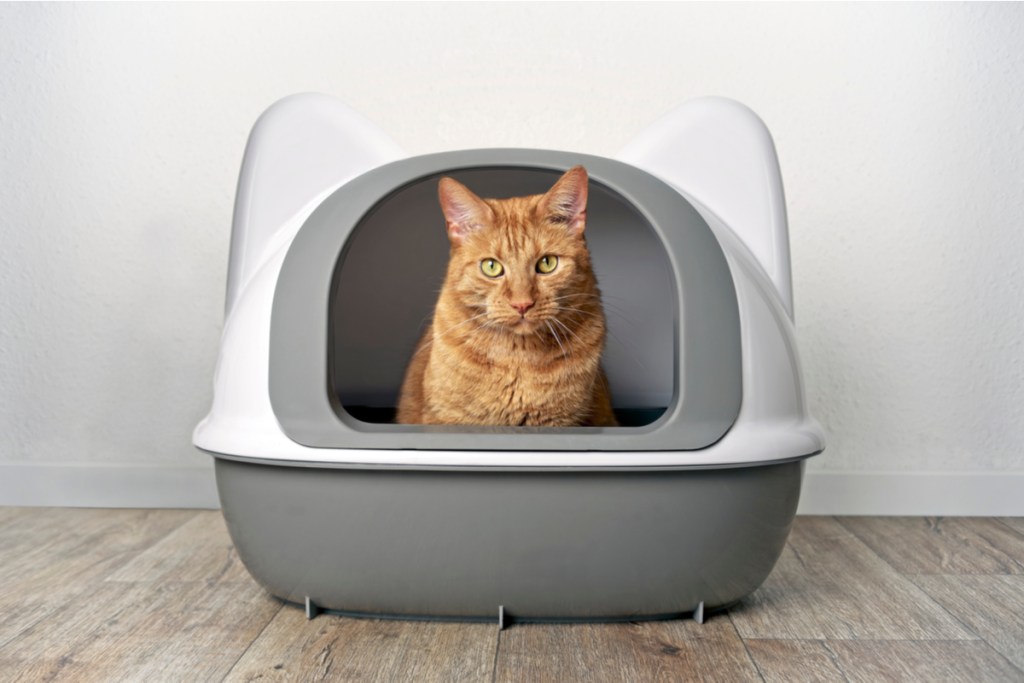When you have multiple cats in your home, cleaning the litter boxes can become a big task. But if you don’t have enough litter boxes for all your cats, you could be headed for trouble. Multiple litter boxes definitely mean more cleaning, but they also mean happier, more secure cats who are more confident in their litter box habits. More boxes could contribute to fewer litter box accidents in your home, so in the long run, getting a few extra litter boxes could save you trouble. When you understand how cats think about using their litter boxes, you’ll see why it’s so important to have enough to go around.

Cats like litter boxes clean
It’s no secret that cats are fastidious. That enjoyment of having things clean and tidy also extends to the litter box. When multiple cats use the same box, it will get dirty and start to smell much faster. Some self-cleaning litter boxes can be a solution to this, but it’s also important to provide your cats with multiple litter boxes so they can choose a different box if they feel that one isn’t clean enough. With plenty of boxes, you won’t have to worry about keeping up with the cleaning quite as frequently, and your cats will be able to choose the box they prefer.
Cats are territorial
When you have multiple cats and only one or two litter boxes, it’s possible that a dominant cat could decide that one box is his, and no one else is allowed to use it. With enough space in the home, most cats can get along fine and avoid confrontations, but if all your cats are trying to get into the same litter box room and space, it’s possible for territorial fights to occur. One assertive cat might prevent the others from being able or from even wanting to get to the box, and they might just decide to use the carpet as their litter box instead.
Cats are solitary
In the wild, as well as in the home, cats don’t like to do their business when others are around. That’s why they prefer to have their boxes located in quiet areas where they can get a little privacy. Sharing a litter box can stress out a cat, especially if multiple cats are all trying to share one box. Make sure you give your cats multiple options with litter boxes placed in different quiet locations within the home. When your cat has choices, if one box isn’t suiting his needs, he can go to another one where he can get his privacy.

How to set up litter boxes in a multi-cat home
When setting up litter boxes for multiple cats, it’s best to have one litter box for each cat and then one extra. So, how many litter boxes for three cats? You’d want at least four boxes.
- When you choose the boxes, make sure that they’re appropriate and accessible for all the cats in your home. Young kittens will need a shorter box, and older cats who have arthritis or mobility issues will benefit from boxes with shallow edges that are easier to get into and out of.
- You might also want to get a variety of box types, both covered and uncovered. Some cats are quite happy with covered boxes and like the privacy they provide, but other cats can find the boxes difficult to turn around in and might prefer to avoid them. With an assortment of box types, you’ll quickly learn which are favorites and which your cats are avoiding.
- It’s also important to place the boxes appropriately throughout your home. Look for quiet areas that are easily accessible for your cats. Try to avoid rooms and locations where other pets, like dogs, might mess with the boxes or interrupt your cats. Make sure that you have a litter box on every floor of the home.
Finding the right combination of box type, box size, box number, and box location can take a little experimentation. If you have particularly picky cats, you might find that you need an extra box or two beyond what’s generally recommended. Remember that the type and amount of litter you’re using can also play a role in getting cats to accept the boxes. Keep your litter consistent when you add or change boxes, and then only gradually transition each box over to a new type of litter. It may sound like a lot of work, but when you have the right number of litter boxes for your cats, you’ll have happier cats with better litter box habits.
Editors' Recommendations
- Wondering why cats chirp? Fascinating reasons why your cat chirps at birds (and you)
- How to tell if your cat is a Maine Coon mix (and why you should care)
- Your cat trilling is actually a good thing – here’s why
- Is your cat hissing and growling a lot? These 5 tips will work wonders on your feline friend
- Why do cats like to sleep on the bed with people? This common behavior explained



